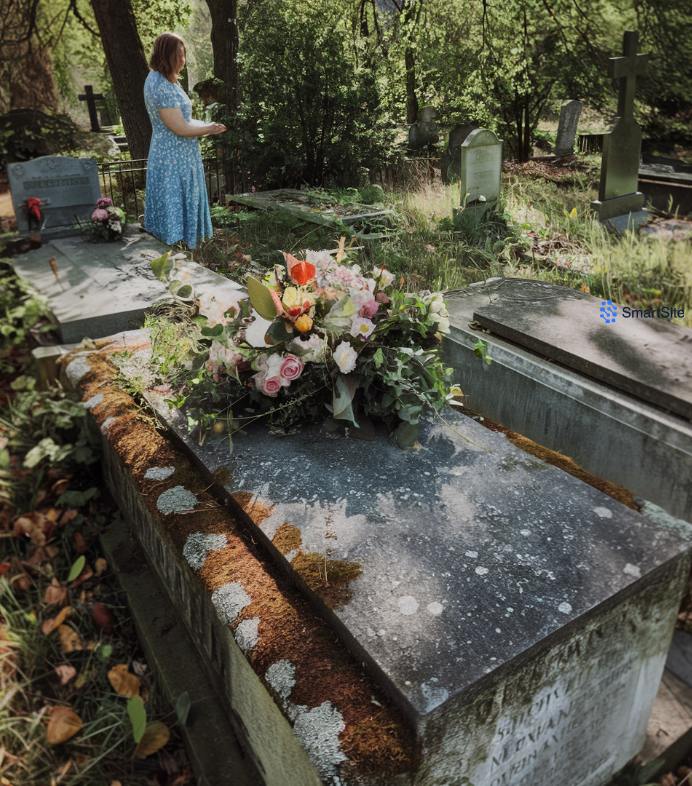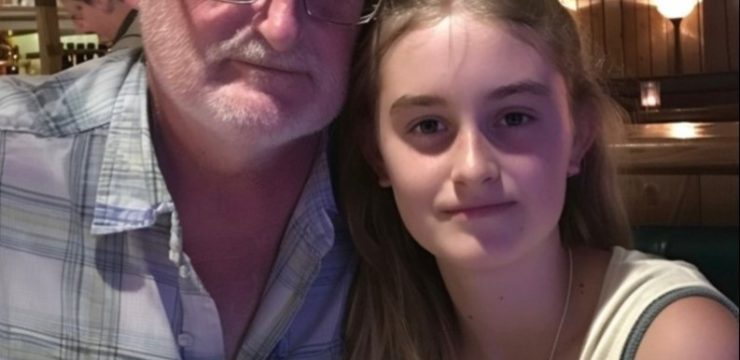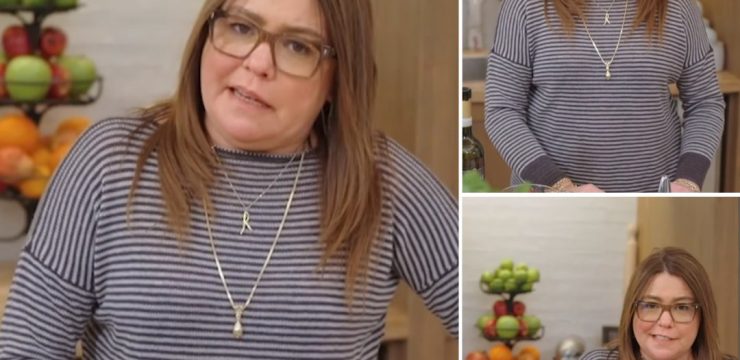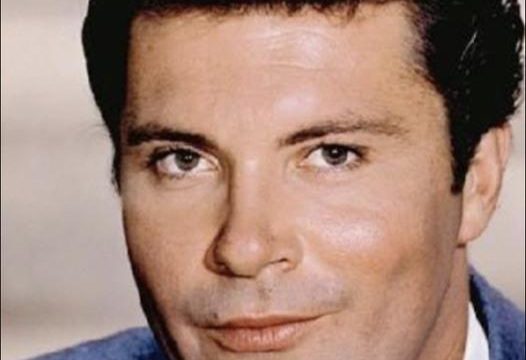I had always made it a point to visit my mother’s grave regularly, bringing fresh flowers to honor her memory. It was my way of staying connected to her, of keeping her presence alive in my life. On one such visit, I was stunned to see a woman standing by my mother’s grave, throwing away the flowers I had just placed there. My immediate reaction was one of anger and confusion. How could someone be so disrespectful?

I marched over to confront her, but as I approached, I noticed something strange. She wasn’t just discarding the flowers carelessly; she was doing it with a quiet, almost reverent demeanor. Her actions, while seemingly harsh, were carried out with a sense of purpose. It made me hesitate, and instead of lashing out, I found myself asking her why she was doing this.
The woman turned to me with a sorrowful expression. She apologized and explained that she wasn’t trying to be disrespectful. Her story was unexpected and heart-wrenching. She had lost her own child several years ago, and since then, she had been visiting different graves, leaving behind her child’s favorite flowers as a way of coping with her grief. When she saw the flowers I had placed, she felt an overwhelming wave of emotion and had instinctively removed them to place her own, believing that her child would somehow be connected through this act.
Her words hit me hard. Here I was, ready to accuse her of being cruel, only to learn that she was struggling with a pain that I couldn’t even begin to imagine. The thought of her going from grave to grave, trying to find some semblance of peace by leaving flowers, made my heart ache. In that moment, I realized how grief can manifest in ways we don’t always understand.
Instead of responding with anger, I felt a deep sense of empathy. I told her she didn’t need to remove the flowers I had placed; we could share the space. Together, we placed both our flowers on my mother’s grave, a small but meaningful act of unity in our shared sorrow.
This experience changed me profoundly. It reminded me that everyone carries their own burdens, often invisible to the world. We all have our ways of dealing with loss, and sometimes those ways might seem strange or even wrong to others. But understanding and compassion can bridge those differences, turning moments of conflict into opportunities for connection.
Now, whenever I visit my mother’s grave, I remember that encounter. It has made me more mindful of the fact that we never truly know what others are going through. The woman’s story has stayed with me, altering how I perceive the world around me. I no longer see my visits to the grave as just a personal ritual, but as a moment to be open to the stories of others who might be struggling with their own losses.
This story serves as a powerful reminder that empathy and understanding can transform even the most difficult situations, offering us a chance to connect with others in unexpected and meaningful ways.





